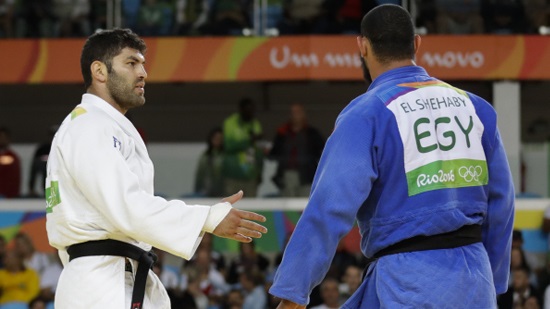Egyptian Judo player Islam El-Shehaby denied recent international media reports suggesting he was sent home after refusing to shake hands with an Israeli opponent at the 2016 Summer Olympics in Rio de Janeiro, Brazil on Friday.
"This did not happen at all. I have not been ordered to return home by anybody or any authority. I returned home with my team in a flight that was scheduled before the game even took place," El-Shehaby affirmed to Ahram Online on Wednesday.
The 34-year-old Judoka became the centre of media attention at Rio 2016 after refusing to shake hands with Israel's Or Sasson following his loss at the men's over 100-kg judo round of 32.
International news agencies claimed on Monday that El-Shehaby was sent home from Rio due to the incident, quoting an official from the International Olympic Committee (IOC).
However, also on Monday, the Egyptian Judo Federation executive manager Wahid Farid confirmed to Ahram Online that the entire team returned home as previously scheduled, highlighting that El-Shehaby did not receive any official reprimand as his behaviour "does not violate any regulation in the sport."
El-Shehaby explained that Sasson was determined to make a scene and "deliberately provoke the situation."
"I was playing the sport and I bowed to my opponent as the sport dictates. The Israeli knew that I would not shake hands with him," El-Shehaby said. "
I gestured to him not to initiate a handshake to avoid this situation, but he was determined to make it happen."
"A handshake happens between friends, and he can never be my friend," he stressed.
El-Shehaby had been under the spotlight at home and abroad, triggering political debate ever since the Olympic draw put him up against Sasson.
Egypt was the first Arab power to make peace with Israel, in 1979. The treaty remains unpopular among many Egyptians due to a history of wars between Israel and Arab states, including the 1967 Israel war against Egypt which ended in a 14-year Israeli occupation of Sinai.




